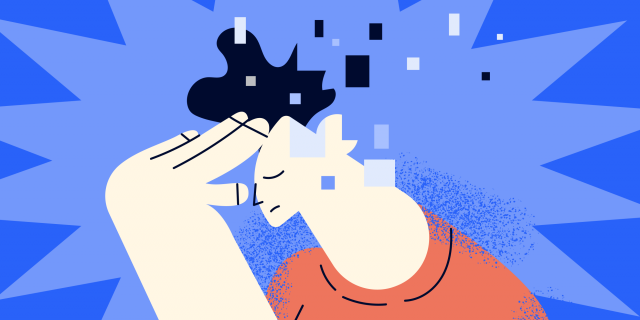What to do
If symptoms occur because of anxiety, stress management techniques may help. You can also see a psychologist or psychotherapist. He or she will teach you how to cope with negative emotions.
Side effect of medication
In the instructions for almost any medication, you can find headaches and nausea as very common side effects. Such symptoms, for example, can cause contraceptives, antidepressants, antihistamines.
What to do
Contact the doctor who prescribed the medication if you are concerned about side effects. Sometimes it is necessary to reduce the dosage, sometimes – to find an analogue. But it happens that the symptoms go away as you get used to the drug.
The key to successful treatment of not only headaches, but in general any disease is that the patient observes his condition and be sure to give the doctor feedback!
Pregnancy
Nausea is among the earliest signs of pregnancy. More often it passes by the second trimester, but it can occur even longer. Headaches for pregnant women are also common.
But sometimes headaches and nausea are caused by a dangerous complication – pre-eclampsia. This is a disturbance in the development of the placenta, due to which, from about the 20th week of pregnancy, the blood pressure rises and protein appears in the urine. Preeclampsia threatens not only the baby, but also the life of the mother. Therefore, be sure to consult a gynaecologist if you notice swelling, blurred vision, abdominal pain.
What to do
Usually pre-eclampsia is found during routine prenatal examinations. The doctor necessarily measures the pressure at every appointment and periodically prescribes a urine test to make sure there is no protein.
The only cure for it is childbirth. In some situations, it will be necessary to induce them earlier. Sometimes the doctor will also recommend a cesarean section to reduce the risks.
There is research that pre-eclampsia can be prevented. If the doctor sees the patient has risk factors (hypertension, diabetes, kidney disease, obesity, heredity for pre-eclampsia), he will prescribe low-dose aspirin to prevent the condition from developing.
Substance abuse
Psychoactive substances can include alcohol, nicotine, caffeine, medications and drugs.
Even excessive use of caffeine and nicotine can cause headaches, nausea, feelings of nervousness, and rapid heart rate.
Similar symptoms are caused by the abuse of drugs, especially if there is addiction. It is said if a person drinks more than 2 painkillers or sedatives per week or more than 8 per month. Most often it occurs from non-steroidal anti-inflammatory drugs based on analgin (especially in combinations with caffeine), ibuprofen or naproxen; sedatives and insomnia remedies, especially those containing phenobarbital.
What to do
It is necessary to gradually wean the body from psychoactive substances. If you can not give them up on your own, contact a specialist. A therapist can help you cope with addiction to tobacco, coffee and medications, and a narcologist can help you cope with alcoholism and drug addiction.

